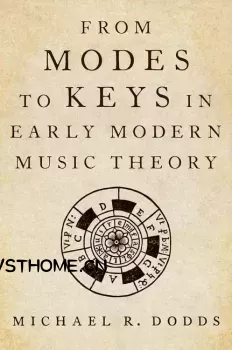English | 2024 | ISBN: 0199338159 | 513 pages | True PDF | 80 MB
英文简介:
From Modes to Keys in Early Modern Music Theory addresses one of the broadest and most elusive open topics in music history: the transition from the Renaissance modes to the major and minor keys of the high Baroque. The system Glarean proposed in his 1547 Dodecachordon comprised twelve modes at two transposition levels; the scheme J.S. Bach used to order The Well-Tempered Clavier in 1722 featured two modes at twelve transposition levels. What took place in between?
Through deep engagement with the corpus of Western music theory, author Michael R. Dodds presents a model to clarify the factors of this complex shift. The essence of this model lies in the dynamic interplay of three historical-conceptual layers arising successively in the Middle Ages, Renaissance, and Baroque, each layer continuing once introduced. Medieval theorists conceptualized mode along a continuum between tune and scale.
Renaissance theorists extended mode from plainchant to polyphony, applying modal theory to such features as cadential hierarchies and contrapuntal imitation. Early Baroque mapping of vocal modality onto the keyboard catalyzed a transformation from the diatonic gamut to the chromatic keyboard as background pitch system, with a corresponding change from ladder to circle as the dominant model for tonal space, culminating in the circle of fifths. Spanning two centuries of music and music theory, and incorporating dozens of diagrams from historical treatises, Dodds provides the first comprehensive study of the transition from the Renaissance modes to the major and minor keys.







评论0